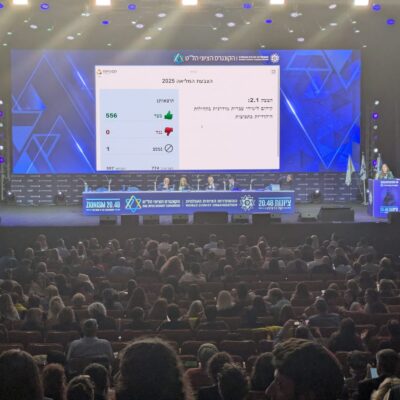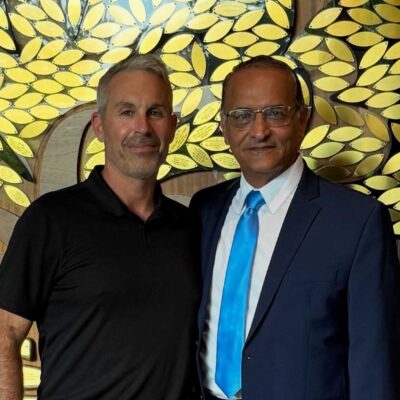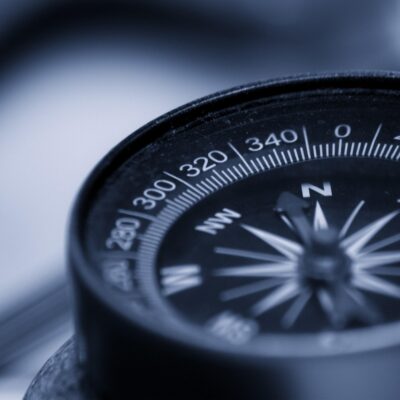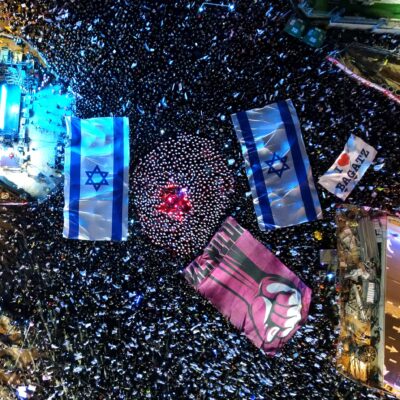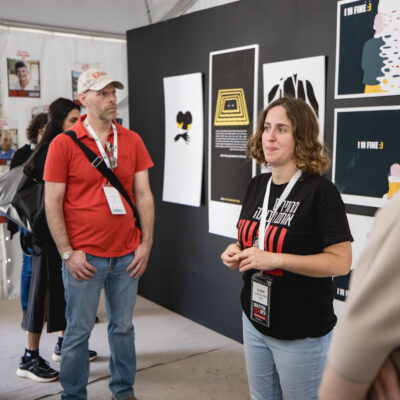What Exactly Is Experiential Jewish Education?

This is the first in a series of articles highlighting the scope of best practices in experiential Jewish education.
by Carolyn Gerecht
This year, studying in the Pardes Center for Jewish Educators’ Program for Experiential Jewish Education (PEEP) and Yeshiva University’s Certificate Program in Experiential Jewish Education, I’ve been fortunate to have had many, many opportunities to answer the question, “What exactly is Experiential Jewish Education?”
Typically, I respond in a couple of short sentences. “Most people think of it as the kind of Jewish education that happens ‘outside the classroom’ – youth groups, Hillels, summer camps, that kind of thing. But it’s really sort of an emerging educational philosophy that cares about the experience of the learner and deliberately structures learning environments…” But by then, I’ve probably already lost you (and understandably so).

Experiential Jewish Education is the process of teaching Jewish life, and Jewish values, by building meaningful Jewish experiences – creating programs that combine traditional methods of text study, learning, and service, with physical and emotional interaction between learners.
That might mean learners experience directly the warmth of a Shabbat dinner together. They might participate in a mock Beit Knesset voting on enacting a Jewish law as a national law. They might build a real eruv. Learners form extremely close relationships with each other, and with outgoing, knowledgeable role model/educators. Experiential Jewish education works to inspire learners to embrace meaningful Jewish lives.

Before I share a little bit about what I’ve learned this year, at Pardes and YU, it’s important to preempt:
- Many Jewish organizations and educators around the world have been practicing experiential Jewish education skillfully for decades. It is definitely not a “new thing.” However, the recent standardization of the field – the creation of a shared professional language; professional development opportunities designed especially for experiential Jewish educators; an explosion of academic articles on the topic; and beyond – is extremely exciting for the future of Jewish education.
- Experiential Jewish Education does not happen exclusively outside the classroom. Dr. Barry Chazan, who directs the Master of Arts in Jewish Professional Studies Program at Spertus, and who has written extensively about experiential Jewish education for many years, stresses that experiential education is in fact an approach – not just a list of educational settings. In other words, experiential Jewish education doesn’t happen only at summer camp. Many day school and Hebrew School teachers study and practice these techniques in a classroom.
Additionally, I have also learned this year that Experiential Jewish Education…
- Strives to promote personal growth and Jewish learning in a structured, yet fun educational environment
- Takes place in an environment where “spontaneous” learning is allowed to occur – educators create and seize upon “teachable moments”
- Is immersive – creates a “world” around the learner
- Uses multiple senses to educate and excite (sight, sound, taste, touch, smell; in addition to light, temperature, pace, volume, etc.)
- Carefully sets the stage for a positive learning experience, offers time for reflection, and seeks constant feedback from the learner
- Deliberately elicits the learners’ emotions in order to enhance, and deepen, their learning experience
- Values the questions over the answers
- Strives to relate Jewish text, stories, songs, and collective history to the learners’ own personal narratives
- Focuses on the group experience – the educator builds a sense of culture, trust, familiarity, and community amongst the group of learners; and the experience thrives from group dynamics
- Views Jewish education as values-driven
- Wants each learner to take away something different from the learning experience, rather than a specific, predetermined objective
- Connects the learning experience to the learners’ future experiences – asks learners, “How can this value be applied in the future?”
- Questions and challenges the learners’ beliefs, and offers an educational experience and opportunity to re-evaluate them
- Leaves the participant “wanting more”
An experiential Jewish educator…
- Embodies the Jewish values that they teach – the integrity of the role model is absolutely vital to his/her success
- Is open, warm, enthusiastic, and knowledgeable
- Comfortably engages students in structured, and organic, conversations about Israel
- Is Jewishly literate – familiar with classical Jewish texts, practices, holidays and ritual
- Has a knack for getting people to talk about themselves and their journeys
- Asks good questions
- Selectively shares stories about his/her own personal practices, beliefs, and struggles, in order to enhance the experience of the learner
- Is hyper-aware of the needs and personality of each learner, and therefore designs programs that cater to a variety of learning styles
In programs all across the world, experiential Jewish educators are developing the skills they need to succeed – skills just like these. We are learning to be deliberate, inviting, and memorable. We are learning Jewish content, creativity, charisma, and community building.

And most of all, we are learning to create “wow” moments: inspiring Jewish experiences that surprise and excite a new generation of learners to wrestle with the same Jewish values and questions that we all address every single day.
The photos included in this essay are from the professional development training that I have received this year, through the Pardes Center for Jewish Educators and Yeshiva University. I hope they help to explain and excite you about the incredible potential for this field.
Carolyn Gerecht is a full-time student in the Pardes Experiential Educators Program at the Pardes Institute of Jewish Studies in Jerusalem, Israel and a current participant in Cohort III of the Yeshiva University Certificate Program in Experiential Jewish Education generously funded by the Jim Joseph Foundation. After her year in Israel, Carolyn will return to Pittsburgh, PA, where she will continue her work in the field of experiential Jewish education.

 Add EJP on Google
Add EJP on Google
